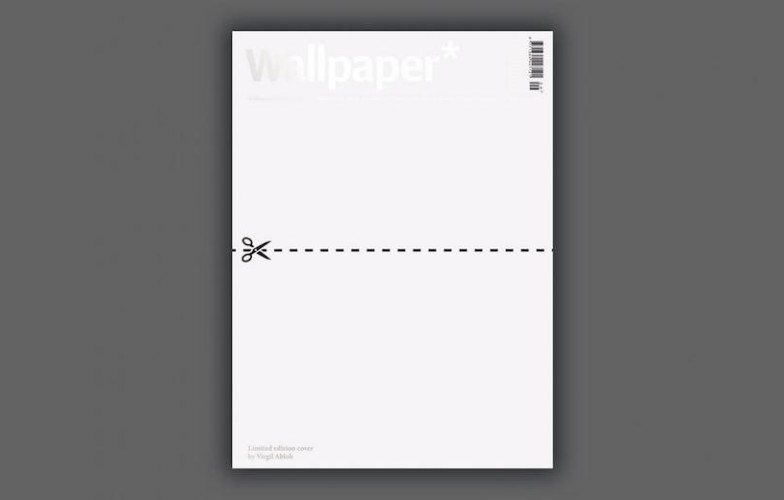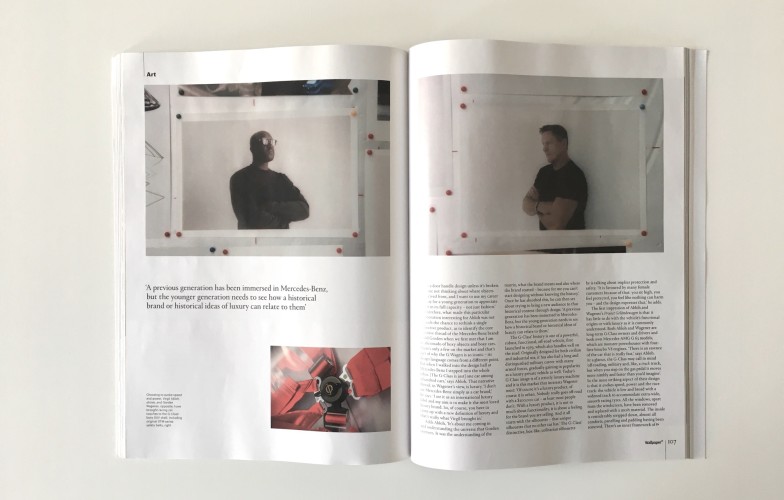An exclusive interview with designer Virgil Abloh and Gorden Wagener, chief design officer of Daimler AG for Wallpaper magazine, ostensibly about their G-Wagen artwork collaboration but also about waning aspirations of ownership, the meaning of luxury and how recent global events have affected their perspectives as designers. Abloh also designed the limited-edition cover of the issue.
“At the beginning of 2020, Mercedes-Benz offered Wallpaper* a preview of a new collaborative art project it was working on, due for launch later this year. The raw material was its four-decade-old, classic SUV series the G-Class, or G-Wagen, as it is also known. The collaborators were Gorden Wagener, the brand’s chief design officer, and Virgil Abloh, the designer, architect, entrepreneur, DJ, artist, artistic director of Louis Vuitton menswear and CEO of his own fashion label, Off-White.
This collaboration is quite a coup for the carmaker. The resulting piece, to be unveiled this autumn, is called Project Geländewagen (Geländewagen is German for ‘terrain vehicle’, from which the G-Wagen gets its name).
Abloh has become one of the world’s hottest designers in recent years. Originally trained as an engineer and architect, he works across a whole range of media, but specifically with brands, their products and where they interact with popular culture. He has been called an ‘arch appropriator’ and indeed he does specialise in editing existing objects or tropes. Give him the core parameters of a brand, product, object or form typology and he will deconstruct and realign their narratives, making them ‘of the now’ by endowing them with new context – both historical and contemporary. This is not so much appropriation as an understanding and continuation of the cultural fractioning that defines our post-postmodern world: editing and remixing what went before. Brands such as Nike, Evian, Ikea and Vitra love Abloh for this fluency, not to mention the potential access he brings to a younger global generation also adept at growing new contexts from fragmented sources and re-expressing them in a language of emojis, memes, acronyms and filters.
This is a generation that, despite its love of appropriation and its ease with commodification, is becoming increasingly distanced from aspirations of ownership of large possessions – such as cars…”
Read the full article here.





